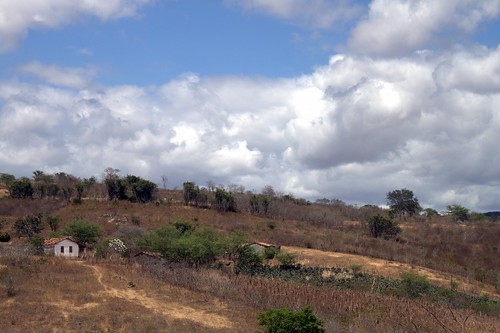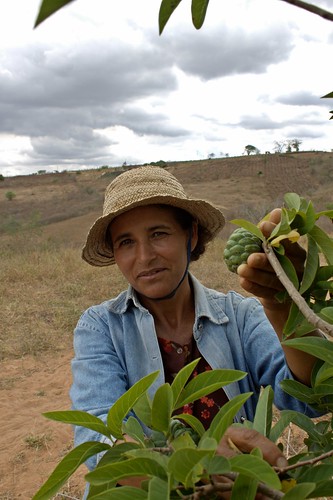Editor’s note: In Context is a new series designed to inform and educate you on Heifer’s work in each country we have a presence. Every two weeks we’ll tackle a different country and examine unique situations related to hunger and poverty, how Heifer works to address them as well as take some time to explore local culture and traditions.

Population: 190 Million
Native greeting: Como vai voce? (How's it going?)
Capital: Brasilia
Official language: Portuguese
Local currency: Real
Overview:
Brazil is the only Portuguese speaking country in the Americas. The population is made up of multiple ethnic groups with African, Portuguese, Italian, German, Spanish and Japanese being a large percentage. 74% of the population is Roman Catholic.
With the exception of Chile and Ecuador, Brazil borders every country in South America. It is the largest nation on the continent. Brazil is divided with the highlands in the south and the Amazon River Basin in the north. With a mostly tropical climate, it's host to 5 climatic subtypes- equatorial, tropical, semi-arid, highland tropical, temperate and subtropical.
In recent years, Brazil has shown impressive growth. It is the largest economy in Latin America and the seventh largest economy in the world. Thanks to this growth and an increasing political focus on poverty, about 40 million Brazilians have been able to step out of poverty in the last decade. However, inequality still remains and Brazil is home to some of the largest and most dangerous slums ( or favelas) in the world.
Even with 36% of the population living under the poverty line, Brazil is considered to have high human development with a HDI (Human Development Index) ranking at 85 out of 187.

Heifer's Approach
Livestock portfolio: Goats, poultry, cattle, hogs, fruit trees and vegetable seeds
Technology portfolio: Flood cisterns and underground water reservoirs
Issues addressed: Social inequality, poverty, local food production and conservation

Heifer began its work in Brazil in 2005 to promote sustainable food systems encompassing everything from agro-ecological production, transformation of communities through smallholder farms, marketing and consumption of healthy foods.
An emphasis is placed on taking social action by forming organizations to lessen social disparities among the middle class and small farmers, rural and urban communities and native populations.
Heifer is present in the northern states of Bahía, Pernambuco, Paraíba, Alagoas, Sergipe, Río Grande do Norte, Ceará, Piauí and Maranhão, as well as Paraná, Santa Catarina and Río Grande do Sul in the south.
To learn more about Heifer Brazil and other countries we work in, visit www.heifer.org